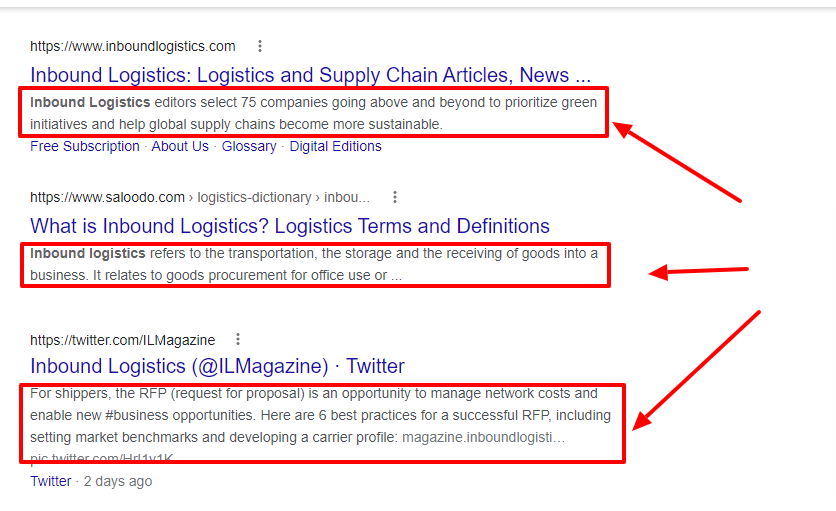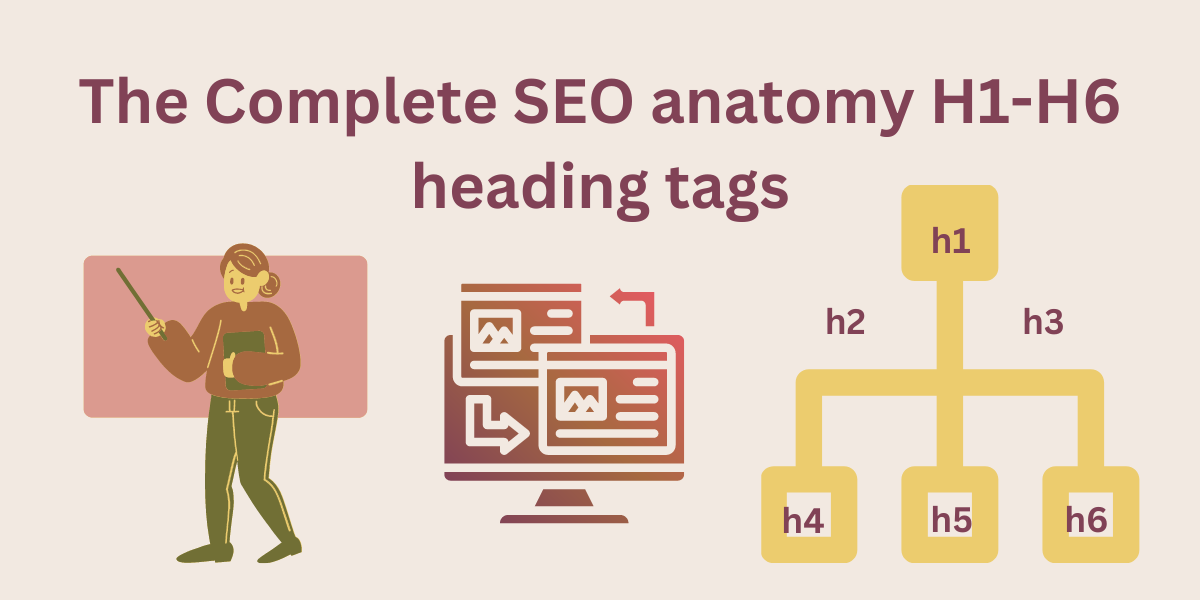- Home /
- Academy /
- SEO Fundamentals /
- Meta Descriptions - The Key to Attracting Click-Throughs
Meta Descriptions - The Key to Attracting Click-Throughs

In general, we all must have come across the term meta description, to move further into this term we should understand the baseline of this concept and then go deep into it with clear elaboration.
So in this blog, we will be seeing a clear view of meta description and how it works and is used by people, and how to extract search value from the meta description.
What is Meta Description?

A meta description is a meta tag attribute that helps to describe your page. This snippet of text may appear in search engine results beneath your headline, though search engines may sometimes pull a snippet of text from the page's primary body copy instead.
The meta description can be found on any web page by right-clicking and selecting "view source" or "view page source."
A meta description (also known as a meta description attribute or tag) is an HTML element that describes and summarises the contents of your page for users and search engines.
While metadata isn't as important for SEO rankings as it once was, the meta description is still important for on-page SEO.
How Does a Meta Description appear?
A meta description appears with the following aspects as a compelling summary of the page someone is about to click on should be included in the meta description.

It should state clearly what they will gain by clicking through. To assist search engines in indexing and ranking the page, meta descriptions should include a target keyword.
How should Meta Descriptions be written?
The best guidelines for writing good meta descriptions are comparable to the ones for writing efficient advertising versions:
- In your meta descriptions, use researched, targeted keywords.
- Always use meta descriptions that are hyper-relevant to the content on each page; never use the same meta description across your entire site.
- Benefits and urgency should be communicated.
- Stimulate users to click by improving its performance and appealing to their emotions.
- Finally, make sure your descriptions are accurate.
- The usage of quality description is essential.
- Because meta descriptions aren't shown on the pages the user sees, it's easy to overlook this content.
- High-quality descriptions, on the other hand, can be displayed in Google's search results and can help you improve the quality and quantity of your search traffic.
Why use the Meta Description?
The meta description essentially serves as your sales pitch. It must be excellent. The meta descriptions play a significant role in a visitor's decision to click on one of the results.
Your meta description serves as "innate ad text."
This means that if your ad ranks for a keyword, Google and other search engines will frequently display the meta description as a summary of the page.
As a result, the meta description is just as important as the ad text. A compelling meta description has the potential to increase the number of people who click on your organic search results.
This means that more people who see your page in the search results will click through and visit your website. That means more traffic for you, even if your ranking remains unchanged.
How long should a meta description be?
There is no perfect meta description length, but the following lengths work well in general:
The maximum character length is 155 characters to 160 characters or 920 pixels.
The minimum character length is 70 characters or 430 pixels.
In most cases, these lengths are valid for most Search engine devices.
However, these lengths are no guarantee that search engines will display your meta description.
In the end, the search engines will decide, but you can influence this by following best practices for writing meta descriptions.
Example of a meta description
Since you only have 160 characters to work with, creating a great meta description requires more than just stringing together a few words.
Here are some meta-description examples for your inspiration to help you get your creativity flowing.
For example, if you take,
1. Uber
The reason for it is working: In 160 characters, Uber manages to slip in some aspirational words, explain what it offers to drivers, and what it provides to riders.

2. Doritos
The reason it works: When you read Doritos' description, it's short, sweet, and creative, informing visitors that if they click through, they're in for something fun.

So these two examples may give you a clear picture of how a meta description can be written perfectly with the given characters and short and creative information to the visitors.
What to avoid when writing a meta description?
- Don't overuse keywords. You will be penalized if you repeat your keyword 9 times.
- Don't use a large chunk of content from a page or post as the meta description.
- Take the time to write unique copy that will serve as a mini-ad for your users and search engines.
- Use different descriptions on different posts or pages. This confuses search engine bots, diluting the effect.
- The same is true for title tags and overall page content; you can perform a site audit to check for duplicate content.
Conclusion
Although meta descriptions do not directly influence how Google ranks your web pages, they do help entice people to click on your links.
So, when it comes to optimizing your site's SEO, nailing your meta descriptions should still be a top priority. And, whenever possible, try to stick to the 160-character limit.
But that doesn't mean you should spend all of your time optimizing meta descriptions. What Google wants is for you to devote more time to creating clever, high-quality content.
As a result, your pages will rank well in search as long as your content is useful to users and contains information that matches search queries.
Start using PagesMeter now!
With PagesMeter, you have everything you need for better website speed monitoring, all in one place.
- Free Sign Up
- No credit card required

Heading tags specify the main heading (h1>) of a page as well as the sub-headings (h2>-h6>) of various content sections.

Authority and trust in SEO concept generally refers to the “Strength “ of a given domain.

Search engine optimization is a combination of technical and content strategies aimed at coordinating a website page with a search engine's ranking algorithm.
Uncover your website’s SEO potential.
PagesMeter is a single tool that offers everything you need to monitor your website's speed.